
Daily Dose Of Jazz…
Ferdinand Povel was born on February 13, 1947 in Haarlem, Netherlands. Coming from an artistic family, his father was a cineaste (filmmaker) and his mother a pianist. At an early age, he developed a taste for jazz, when first introduced to as a gift on his twelfth birthday, he received a ticket to a late-night concert by the Duke Ellington Orchestra at the Amsterdam Concertgebouw.
In 1961 he began studying clarinet with Theo Loevendie and teaching himself saxophone because jazz was not yet taught formally in the Netherlands. Ferdinand learned by playing with experienced musicians, such as pianists Rob Madna and Frans Elsen, picking up knowledge of harmony and arrangement as a young member of the orchestras of Kurt Edelhagen and Peter Herbolzheimer, and of the Skymasters.
In 1964 at 17, Povel won the Loosdrecht Jazz Concours with the Martin Haak Quartet. This was the start of his career as a professional musician. 1966 saw him playing with The New Sound Incorporated, giving school concerts and radio and TV broadcasts for Tros and Avro broadcasting companies. He went on to be a finalist at the 1966 International Modern Jazz Festival in Vienna, Austria where the judges included Cannonball Adderley and Mel Lewis.
In the same year, the Netherlands Jazz Orchestra invited Povel to join them as a saxophonist and flutist. Three years later he was in Munich, Germany playing with trumpet player Dusko Goykovich in his Summit Quintet, starring drummer Philly Joe Jones and touring Europe several times.
Ferdinand would go on to play with the Kenny Clarke/Francy Boland Big Band, the Kurt Edelhagen Orchestra, tour the United States of America with the Maynard Ferguson Big Band, and the Peter Herbolzheimer’s Rhythm Combination and Brass from 1971 to 1985. He was a member of George Grunz’s band, Jiggs Whigham Sextet, and the bands of Rob Madna, Frans Elsen, and Cees Slinger. He has played in the front line with jazz icons such as Art Farmer, Bennie Bailey, Woody Shaw, and Jimmy Knepper.
Throughout his career he was never far from playing in various occasional orchestras for radio and television. As an educator he taught jazz improvisation at the Rotterdam Conservatory and at conservatoriums in Zwolle, Hilversum and The Hague. Since 1990 he has taught exclusively at the Hilversum Music Academy, now named the Conservatory of Amsterdam, as part of Amsterdam School of the Arts.
Saxophonist Ferdinand Povel has a discography that includes over one hundred record and CD albums to which he has contributed as a soloist. He has received several honors and continues to perform and educate.
More Posts: bandleader,educator,flute,history,instrumental,jazz,music,saxophone
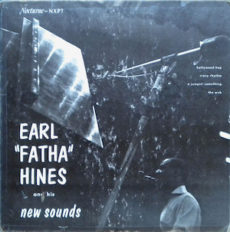
Daily Dose Of Jazz…
Le Roy Watts Harris Jr. was born on February 12, 1916 in St. Louis, Missouri. He played violin while young, then learned saxophone and clarinet. By age 13 he was playing with pianist Chick Finney.
Relocating to Chicago, Illinois around 1930 he played with Ray Nance from 1931 to 1936. Following this stint he worked with Earl Hines from 1937 to 1943. He joined the United States Navy during World War II and played in a band from 1943 to 1944. After his discharge he played with Bill Doggett, Ben Thigpen, Tadd Dameron, Sarah Vaughan, Singleton Palmer, and Wynonie Harris, then returned to play with Hines once more.
In the early 1950s he led his own band at the Kit Kat club in New York. He resettled in St. Louis again in 1957 and played with Eddie Johnson from 1960 to 1971.
Saxophonist and clarinetist Le Roy Harris Jr., whose father and uncle were both jazz musicians, transitioned on February 16, 2005 in his hometown of St. Louis.
More Posts: bandleader,clarinet,history,instrumental,jazz,music,saxophone
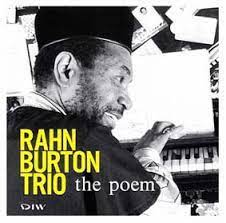
Daily Dose Of Jazz…
Rahn Burton was born February 10, 1934 in Louisville, Kentucky. He began taking piano lessons at age 13, and worked locally in Louisville before playing his first gigs with Roland Kirk. He toured with Kirk from 1953 to 1959 and recorded with him into the early 1960s, contributing the composition Jack the Ripper to the 1960 release Introducing Roland Kirk.
Moving on to play local gigs in New York City and Syracuse, New York for a short time in the early 1960s, he returned to local playing in Louisville. During 1964-65 he played organ in George Adams’s touring ensemble, and played briefly with Sirone around the same time.
1967 saw Burton re-joining Roland Kirk’s group, playing with him at the 1968 Newport Jazz Festival and on several recordings through 1973. He also founded his own ensemble, African American Connection, which included Roland Alexander, Bob Cunningham, Ricky Ford, and Hannibal Marvin Peterson.
He recorded extensively as a sideman in the 1970s and 1980s with George Adams and Hannibal Peterson, Carlos Garnett, Beaver Harris, Jemeel Moondoc, Charlie Rouse, Leon Thomas and Stanley Turrentine. His associations in the 1990s included work in Austria with Nicholas Simion and a trio recording in 1992 with Walter Booker and Jimmy Cobb.
Pianist Rahn Burton, who was also known as Ron Burton or William Burton, transitioned on January 25, 2013 in Manhattan, New York.
More Posts: bandleader,history,instrumental,jazz,music,piano
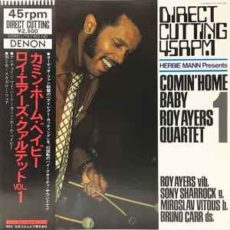
Daily Dose Of Jazz…
Edward “Bruno” Carr was born on February 9, 1928 in The Bronx, New York. Growing up he lived around many different ethnic groups, including neighborhoods with German and Italian residents. Listening to the radio as a youth, he heard different styles of music while developing his ear and his memory. By the time he started playing professionally he had anarsenal of songs that he surprised band leaders he already knew and had no need for charts when they handed them to him.
As a timbale player in Latin bands, one can hear the inflection in the way he plays his small tom-toms at times. Though not a household name, his playing with a lot of fire and conviction made him a sought after drummer among the jazz elite. Kenny Burrell, Billie Holiday, Ray Charles, John Coltrane, Charlie Parker, Michael Franks, Aretha Franklin, Monte Alexander, Stanley Turrentine, Roy Ayers, King Curtis and Harry “Sweets” Edison have all had him on their bandstand.
Here recorded several single albums, each with Aretha, Curtis Amy, Walter Davis Jr., Lou Donaldson, and Eddie “Cleanhead” Vinson, however, his largest body of work was with Herbie Mann, recording eighteen albums with the flutist from 1964 to 1970.
Drummer Bruno Carr, who was a frequent collaborator with Ray Charles, transitioned from lung cancer on October 25, 1993 in Denver Colorado at the age of 65.
More Posts: drums,history,instrumental,jazz,music
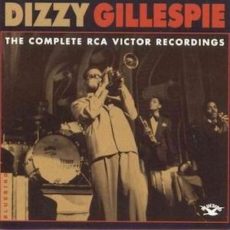
Daily Dose Of Jazz…
Sam Allen was born in Middleport, Ohio on January 30, 1909 and beginning at the age of seven started playing the piano. By 10 he accompanied silent films on piano in movie theaters, allowing him to sit and extemporize as the action unfolded on screen. Over the next few years he absorbed plenty of slapstick hi-jinx and derring-do from the Hollywood sagas he accompanied.
1928 saw the 19 year old Sam moving to New York City where he joined Herbert Cowans’s band at the Rockland Palace. It wasn’t too long after the move before he moved back to Ohio, where he played with saxophonist Alex Jackson through 1930.
He joined James P. Johnson’s orchestra as a second pianist absorbing the intense chords in the scores that required two pianos. For amuch of the ’30s, he played with the dance band of Teddy Hill including a European tour. In the 1940s he had one of his most musically satisfying collaborations as piano man in the sometimes rowdy combo of violinist Stuff Smith. Playing in the hyper-drive bebop of Dizzy Gillespie, and then the shenanigans as pianist for the madcap jive jazz duo Slim Gaillard & Slam Stewart.
As the Fifties approached he relocated to Washington, shifting gears from touring sideman to stay-at-home featured soloist. He then headed for California where he settled into the Oakland jazz scene, often accompanying the fine singer Billie Heywood. Pianist Sam Allen transitioned at the age of 63 in April 1963.
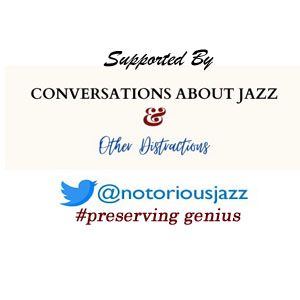
More Posts: history,instrumental,jazz,music,piano


